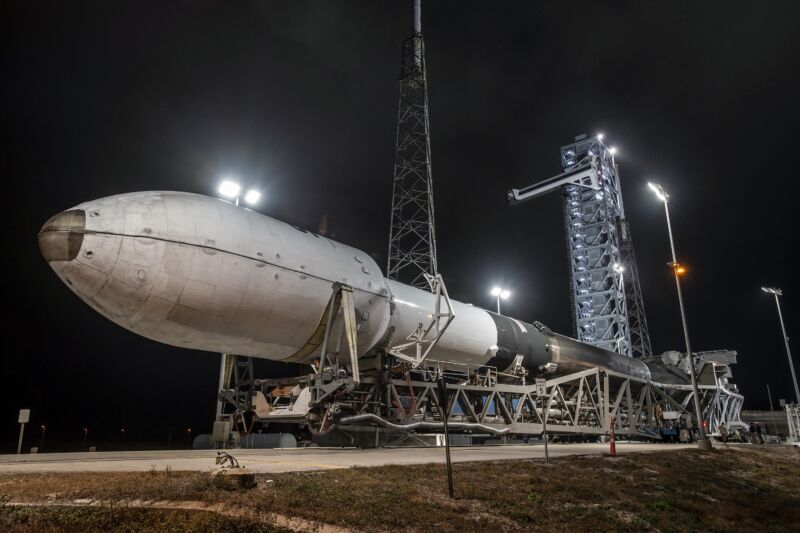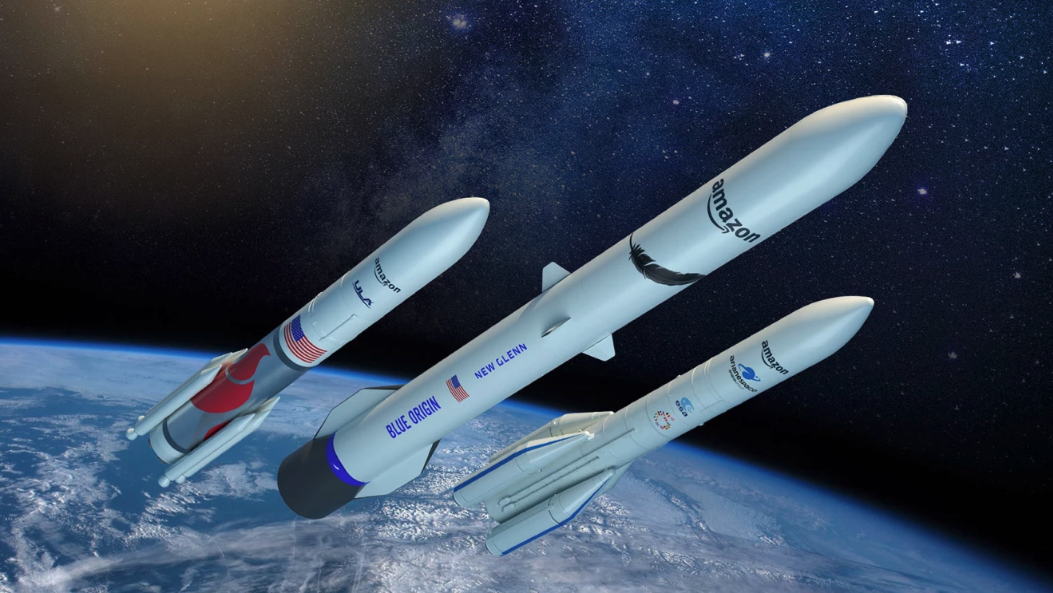In a move that highlights the urgency of its satellite deployment schedule, Amazon announced last Friday that it has purchased 3 Falcon 9 rocket launches from leading launch provider SpaceX. The flights, scheduled to begin in mid-2025, will help deploy components of Amazon’s Project Kuiper constellation, which aims to provide broadband internet access through a network of over 3,000 satellites in low Earth orbit.
The SpaceX deal came as a major surprise, given that its Starlink fleet is positioned to be Kuiper’s chief competitor in the race to dominate the satellite internet market. However, with Kuiper facing development delays, Amazon has found itself in need of SpaceX’s unmatched launch capabilities.
Playing Catch-Up in the Satellite Internet Race
While SpaceX has already deployed over 5,000 Starlink satellites to date, Kuiper lags far behind. Kuiper’s first two prototype satellites launched this October aboard a ULA Atlas V rocket. Their successful testing paves the way for Amazon to begin mass-producing satellites for broader deployment next year.
However, Amazon finds itself on a tight timeline to get Kuiper fully operational. Regulations require the company to have half of its planned first-generation constellation – 1,618 satellites – launched by July 30, 2026. With billions invested into Kuiper thus far, Amazon has strong incentives to accelerate its launch schedule to meet this crucial FCC deadline.
Earlier Launch Deals Proving Insufficient
 Last April, Amazon made waves by securing heavy-lift launch contracts worth billions with Arianespace, Blue Origin and United Launch Alliance. The agreements encompassed a whopping 68 dedicated launches on Ariane 6, New Glenn and Vulcan Centaur rockets to ferry over 3,000 Kuiper satellites into orbit through 2029.
Last April, Amazon made waves by securing heavy-lift launch contracts worth billions with Arianespace, Blue Origin and United Launch Alliance. The agreements encompassed a whopping 68 dedicated launches on Ariane 6, New Glenn and Vulcan Centaur rockets to ferry over 3,000 Kuiper satellites into orbit through 2029.
The huge batch purchase was designed to provide ample launch capacity for swift build-out of Amazon’s satellite constellation within the FCC’s mandated timeline. However, delays with next-generation launch vehicles have thrown Kuiper’s deployment plan into uncertainty.
Both ULA and Arianespace’s brand new rockets have seen their debut flights pushed back over a year since contract signing. Meanwhile, Jeff Bezos’ New Glenn won’t be ready for maiden voyage until late 2024 at the very earliest. With these setbacks, and the looming 2026 deadline, Amazon found itself in need of other options to maintain launch opportunities.
Turning to the Flight-Proven Falcon 9
 This reality likely forced Amazon to turn to SpaceX and the stalwart Falcon 9 rocket for additional capacity. With over 200 successful missions under its belt, the partially reusable Falcon 9 boasts unmatched reliability and launch cadence compared to any other contemporary launch vehicle.
This reality likely forced Amazon to turn to SpaceX and the stalwart Falcon 9 rocket for additional capacity. With over 200 successful missions under its belt, the partially reusable Falcon 9 boasts unmatched reliability and launch cadence compared to any other contemporary launch vehicle.
While rivalry and personality clashes between CEOs Elon Musk and Jeff Bezos have been highly publicized, Amazon in this case prioritized practical business needs in ensuring timely access to space for Kuiper over its founder’s personal preferences. With $10 billion invested in Kuiper thus far, and half its FCC license at stake, Amazon is pressing forward to get satellites launched by any means necessary.
Even amidst booming internal demand from its own Starlink network, SpaceX has shown willingness to take on satellite internet competitors as customers. It already launches satellites for other broadband constellations like OneWeb to orbit today. From a revenue standpoint, SpaceX has every incentive to sell excess Falcon 9 capacity to clients like Amazon when able.
Reacting to Shareholder Lawsuit Over SpaceX Snubbing
Interestingly, Amazon’s embrace of SpaceX comes just days before a court-mandated deadline to respond to claims from shareholders that inter-CEO rivalry contributed to unfair exclusion of SpaceX vehicles during its evaluation process for Kuiper’s launch contracts.
 The lawsuit alleges that animus stemming from Musk and Bezos’ tense relationship factored into Amazon failing to properly consider SpaceX when assessing launch providers for Kuiper last year. Members of Amazon’s board now stand accused of breaching fiduciary duty by rushing through the massive Arianespace/Blue Origin/ULA deal without diligent assessment of potential cost savings had SpaceX rockets been included.
The lawsuit alleges that animus stemming from Musk and Bezos’ tense relationship factored into Amazon failing to properly consider SpaceX when assessing launch providers for Kuiper last year. Members of Amazon’s board now stand accused of breaching fiduciary duty by rushing through the massive Arianespace/Blue Origin/ULA deal without diligent assessment of potential cost savings had SpaceX rockets been included.
In response, Amazon has firmly rejected accusations that personal relationships or grudges impacted objective business decisions in any way. However, the timing of Friday’s announcement looks suspiciously aimed at strengthening Amazon’s defense against charges of bias by demonstrating a willingness to purchase Falcon 9 launches when in the corporation’s interests.
While speculation abounds, Amazon’s overriding priority remains rushing to deploy satellites to meet rigid FCC timelines. With new launch vehicles delayed, every rocket counts towards accelerating Kuiper’s path to commercial viability. Even bitter industry rivals must sometimes collaborate to achieve ambitious goals in the capitalist space race











